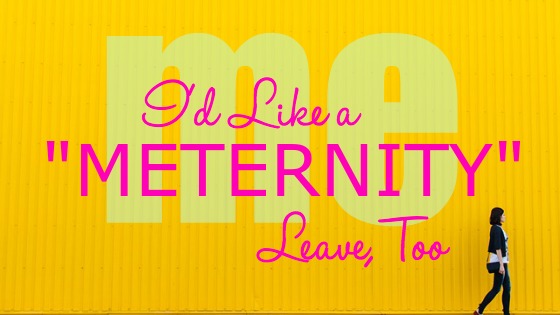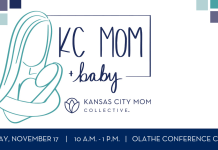In her new book, Meghann Foye proposes that women who have no children should get a “meternity” leave. Meghann herself took a whopping 18 months off of her corporate job to “grapple with some self doubt” and get back in touch with herself.
Call me crazy, but I’d also like a “meternity.” I’d love for someone to give me some time, anytime, from work and responsibilities. I’d love the opportunity to reflect on my life, and, through introspection, move forward with a clear mind and a content heart. I’d love a break from the grind – some time to catch up on my reading list, schedule a massage or two, and maybe try out a new cookbook for some gourmet, homemade meals. Sign me up. Sounds fantastic.
Let’s be honest for a minute. 21st century society has us all burning the candle at both ends. We’re plugged in, tuned in, turned up and burnt out. The idea of a time for rest and reflection sounds like a dream come true, and the ideas that Ms. Foye seems to be suggesting are a logical reaction to a society that demands that we work like dogs, look like super models, and party like rock stars. I’m exhausted just thinking about it!
So, I get it. I’m with you here.
But, I’d like to introduce you to a word that I’m not yet sure you understand. The word is SABBATICAL. It is defined in the Meriam-Webster Dictionary as a period of time during which someone does not work at his or her regular job and is able to rest, travel, do research, etc.
I think this, Ms. Foye, is what you meant to say.
For those who have never had a baby, let’s get enlightened on maternity leave. The United States ranks at the bottom of the barrel for maternity leave. Working mothers are entitled to no paid leave. None. The Family Medical Leave Act (FMLA), which only covers an estimated 55% of US employers, provides that a job will be held for 12 weeks. Which means 45% of working mothers are entitled to zero leave under the federal law. Zero leave. Period. State laws vary, some using vague language like “reasonable amount of time,” rather than defining what that time should be. Even if a working mother is covered by these statutes, neither entitle her to pay.
The other reality of the situation is that employers break the law every day. There is no guarantee that a working mother will have a job to return to at the end of her leave, whether that leave lasts 12 weeks or until the next work day.
The other ugly reality is that pregnant workers are subjected to discrimination, sexual harassment, and the threat of losing their jobs, all while trying to prepare themselves financially for the whopping hospital bill they’ll receive and whatever inadequate amount of leave they will receive. Without pay.
Many pregnant workers, if they are in good health, will work up to their delivery, choosing to use their leave time to recover from birth, as opposed to resting up for the big event. I don’t know the numbers on how many of us have done this, but I will throw out there that I was in active labor for two hours before I left my job on my last day at work. I finished my entire work day. My son was born just six hours after I left the office. That might sound insane, because it sounds nutty to me and I chose it. But, the reality of recovering from the birth of a baby necessitated that I literally use every second of my maternity leave for that process.
Whether a woman delivers her baby vaginally or through a cesarean, the end result is the same: we all feel as though we’ve been hit by a Mack Truck. The aftermath of birth can consist of any combination of the following: postpartum depression, episiotomies, perineal tears, blood loss, placenta previa, placenta accrete, uterine inversion, hemorrhoids, incontinence, constipation. I could continue, but I think you get the gist. Giving birth is a monumental physical feat, and it is not without its consequences. While a new mom is dealing with the physical trauma of birth, she is also taking care of a teeny, tiny human (or humans) who is new here and not quite accustomed to our ways. Humans who require round the clock care, ensuring that their new mother, who desperately needs rest to heal, will get none. This is, of course, assuming that the baby is healthy.
The point I am obviously, long-windedly trying to make, is that no new mother is using her maternity leave for self reflection and relaxation. She’s using it to tend to her raw and chapped nipples or to clean poop out of her hair or to bounce her colicky baby for hours on end. All while isolated and alone. Because her support system, assuming she has one, has had to return to work. Because the whole birthing process is being swept under a rug (there is something wrong when new mothers are shocked to discover they’ll be coming home in their own diapers). Because words like “vagina” are fire-able offenses and because some folks are delusional enough to think that she’s just on an extended vacation.
And she’s being bullied. She’s belittled for being lazy. Degraded as a worker. Chastised for the privilege that she has to get a “break.” And it is precisely this bullying that ensures that, every day, across the United States, women are returning to work with shredded bodies, leaving sick and needy babies at home. When we should be protecting families, we are instead punishing them. But, why? So that someone can get her 15 minutes of fame by waging war against mommies to justify her own 18 month sabbatical? Conflating terminology to sell books and coining new buzzwords for attention only helps to further the current, anti-family policies that control our laws and our work forces. It punishes women for giving birth. It punishes babies for being born. To be truly pro-family would be to stop the bullying and revisit these policies. Allow women the time that their bodies need to heal. Without forcing them into financial ruin.
So, Ms. Foye, I get it. I need a sabbatical, too. It has been years since I’ve slept through the night, and I’m still healing from my son’s birth. This mama could use a break. But, please, don’t think that our shared need for some rest and relaxation is a privilege that only I have been able to achieve. While it seems you got more than your fair share of time, I can assure you that I have not.


















Thank you for writing this article. As a new mom, I couldn’t believe the lack of maternity leave that I was being offered, by a Catholic archdiocese no less. And I was one of the “lucky” ones because I had signed up for short term disability (which of course I had to pay for). The 12 weeks that I was allowed to take was not enough even with a healthy baby. I don’t know who came up with the 12 weeks magical number, but it’s simply not enough time physically and emotionally. Hopefully this country can fix the massive problem.
I could only hope to have said it as well! This needs to go viral!
Very well said! I definitely did not feel rested and relaxed when I returned to work after having my son. I would have loved to spend 18 months home with him instead of only 12 weeks. It saddens me that some women will bully others just because of different life choices in order to gain attention. Women, no matter what, should be building each other up.
Foye is a woman, and is an advocate of longer parental leaves and women’s rights.
Same statement applies: Women, no matter what, should be building each other up.
This article should go viral! It resonated with me so much so that it actually brought me to tears. I allowed myself to look back and remember the discrimination, the fear about losing my job, working up to the last minute, postpartum depression, and healing after my twins were delivered. Returning to work way before I was ready, I continue to struggle to balance the demands of my work and my desire to give my family the basic attention that it needs.